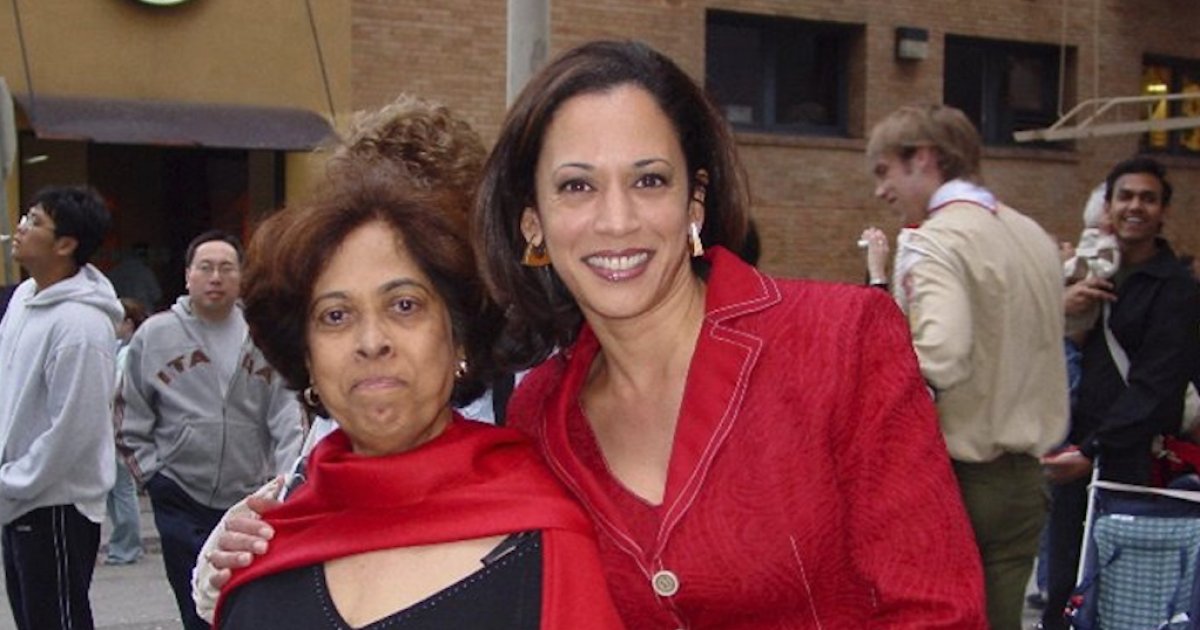Forget politics for a moment, let’s talk about moms. Kamala Harris lost hers to colon cancer in 2009. If there’s one thing too many of us can relate to, it’s losing a loved one to cancer.
The newly-announced pick for VP still gets teary when talking about it. “The day my mother told us she had colon cancer was one of the worst days of my life,” Kamala Harris tweeted on February 4, World Cancer Day.
Read MoreView this post on Instagram
My mother never asked for permission to tell her what was possibleand that's why I'm in this race.
“Shyamala Harris was no more than five feet tall,” Harris wrote in a mother’s day tribute on Instagram, “but if you ever met her you would think she was seven feet tall. She had such spirit and tenacity and I'm thankful every day to have been raised by her.”
Dreams of Becoming a Scientist
After graduating from the University of Delhi in India at 19, Shyamala Gopalan left her home country to attend the University of California at Berkeley in 1959. There, she earned a Ph.D. in nutrition and endocrinology.
She remained there during her career as a breast cancer researcher, then later worked at the University of Illinois and the University of Wisconsin. In her memoir, Harris said her mother often took her and her sister to the lab, where they helped clean test tubes.
RELATED: What Are CD4/CD6 Inhibitors? And How Can They Fight Advanced Breast Cancer?
“She had dreams of becoming a scientist,” Harris wrote on Facebook in June. Harris’ father, Donald Harris, is from Jamaica. He is a professor emeritus at Stanford, where he taught economics. The couple divorced when Kamala was young, according to Marie Claire.
Dr. Erica Mayer, a medical oncologist at Dana Farber Cancer Institute on aromatase inhibitors, which reduce hormone levels in patients with breast cancer.
“She went against a practice reaching back thousands of years, and instead of an arranged marriage, chose a love marriage,” Harris explained.”This, an act of self-determination. made me and my sister Maya. And like millions of the children of immigrants before and since it made us Americans."
A Colon Cancer Diagnosis
When Shyamala Gopalan Harris was diagnosed with colon cancer in 2008, her daughter was devastated. Dr. Shyamala Harris died on February 11, 2009 at age 70.
Dr. Zuri Murrell, a colorectal surgeon at the Cedars-Sinai Medical Center on the importance of being your own health advocate — even it means being pushy.
“She was my inspiration and dedicated her life to finding a cure for breast cancer,” Harris said in her World Cancer Day tweet, adding, “too many lives have been cut short.”
Her Discovery Sparked Advancements
Her obituary, published in the San Francisco Chronicle said, “one of her greatest contributions was her seminal work in isolating and characterizing the progesterone receptor gene in a mouse — a momentous finding that transformed our understanding of the hormone-responsiveness of breast tissue.”
“Her discovery sparked a plethora of advancements regarding the role of progesterone and its cellular receptor in breast biology and cancer.”
Despite her achievements, the notice also said the “roles Shyamala cherished most were of “Mommy” and “Grandma,” adding that her “spirit lives on in her daughters, Kamala and Maya.”
Learn more about SurvivorNet's rigorous medical review process.

